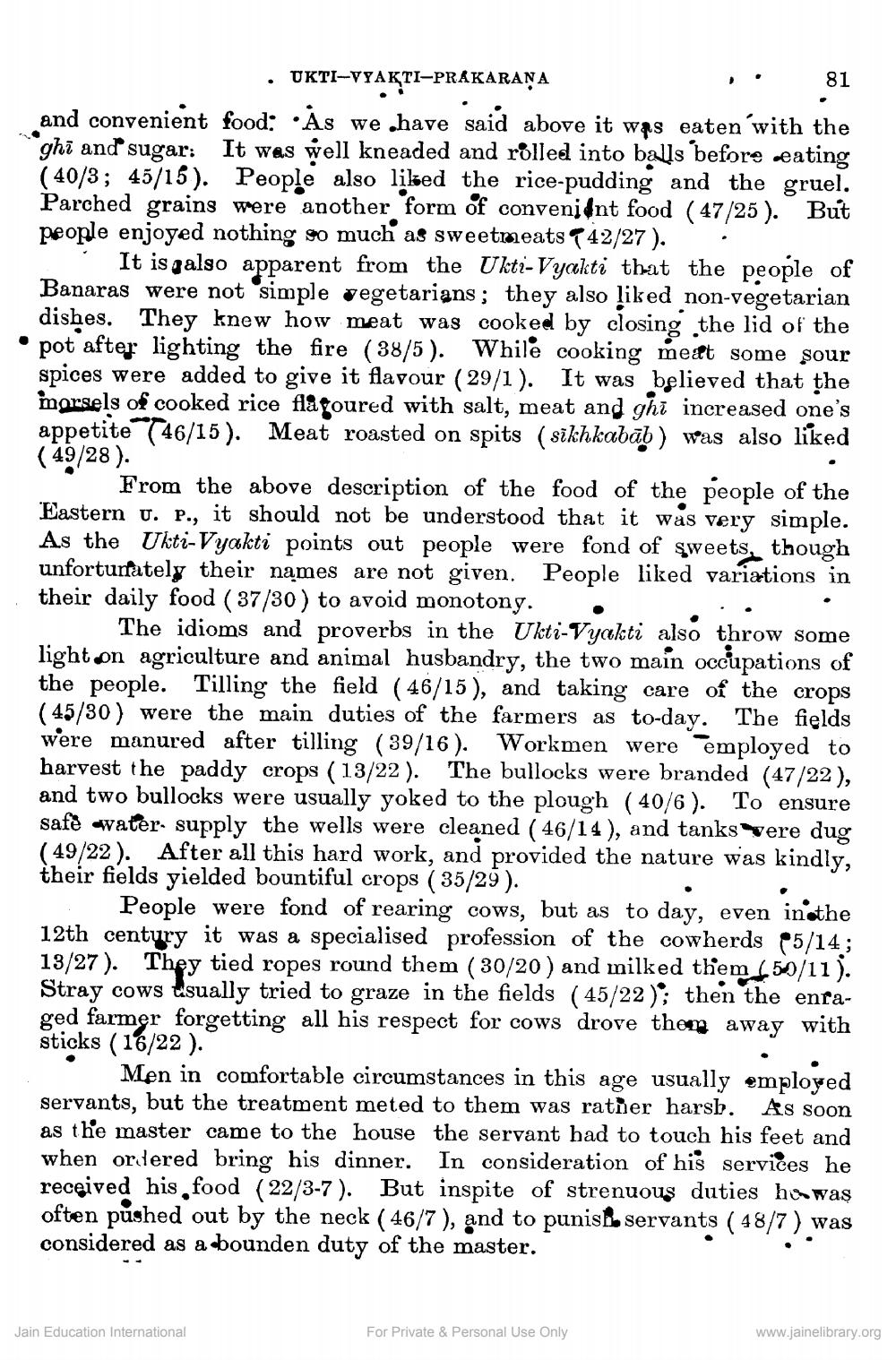________________
· UKTI-VYAKTI-PRAKARANA
.. 81 and convenient food: •As we have said above it was eaten with the ghi and sugar: It was well kneaded and rolled into balls before eating (40/3; 45/15). People also liked the rice pudding and the gruel. Parched grains were another form of convenidnt food (47/25 ). But people enjoyed nothing so much as sweetmeats 742/27). .
It is galso apparent from the Ukti-Vyakti that the people of Banaras were not simple vegetarians; they also liked non-vegetarian dishes. They knew how meat was cooked by closing the lid of the pot after lighting the fire (38/5). While cooking meat some sour spices were added to give it flavour (29/1). It was believed that the marsels of cooked rice flafoured with salt, meat and ghi increased one's appetite (46/15). Meat roasted on spits (sikhkabāb) was also liked ( 49/28).
From the above description of the food of the people of the Eastern v. P., it should not be understood that it was very simple. As the Ukti-Vyakti points out people were fond of sweets, though unfortunately their names are not given. People liked variations in their daily food (37/30 ) to avoid monotony. .
The idioms and proverbs in the Ukti-Vyakti also throw some light on agriculture and animal husbandry, the two main occupations of the people. Tilling the field ( 46/15), and taking care of the crops (45/30) were the main duties of the farmers as to-day. The fields were manured after tilling (39/16). Workmen were employed to harvest the paddy crops (13/22). The bullocks were branded (47/22), and two bullocks were usually yoked to the plough (40/6). To ensure safe water supply the wells were cleaned ( 46/14), and tanks were dug ( 49/22). After all this hard work, and provided the nature was kindly, their fields yielded bountiful crops ( 35/29).
People were fond of rearing cows, but as to day, even insthe 12th century it was a specialised profession of the cowherds (5/14; 13/27). They tied ropes round them (30/20) and milked them (50/11). Stray cows usually tried to graze in the fields ( 45/22); then the entaged farmer forgetting all his respect for cows drove them away with sticks (16/22 ).
Men in comfortable circumstances in this age usually employed servants, but the treatment meted to them was rather harsh. As soon as the master came to the house the servant had to touch his feet and when ordered bring his dinner. In consideration of his services he received his , food (22/3-7). But inspite of strenuous duties ho was often pushed out by the neck ( 46/7), and to punish servants ( 48/7) was considered as a bounden duty of the master.
For Private & Personal Use Only
www.jainelibrary.org
Jain Education International




